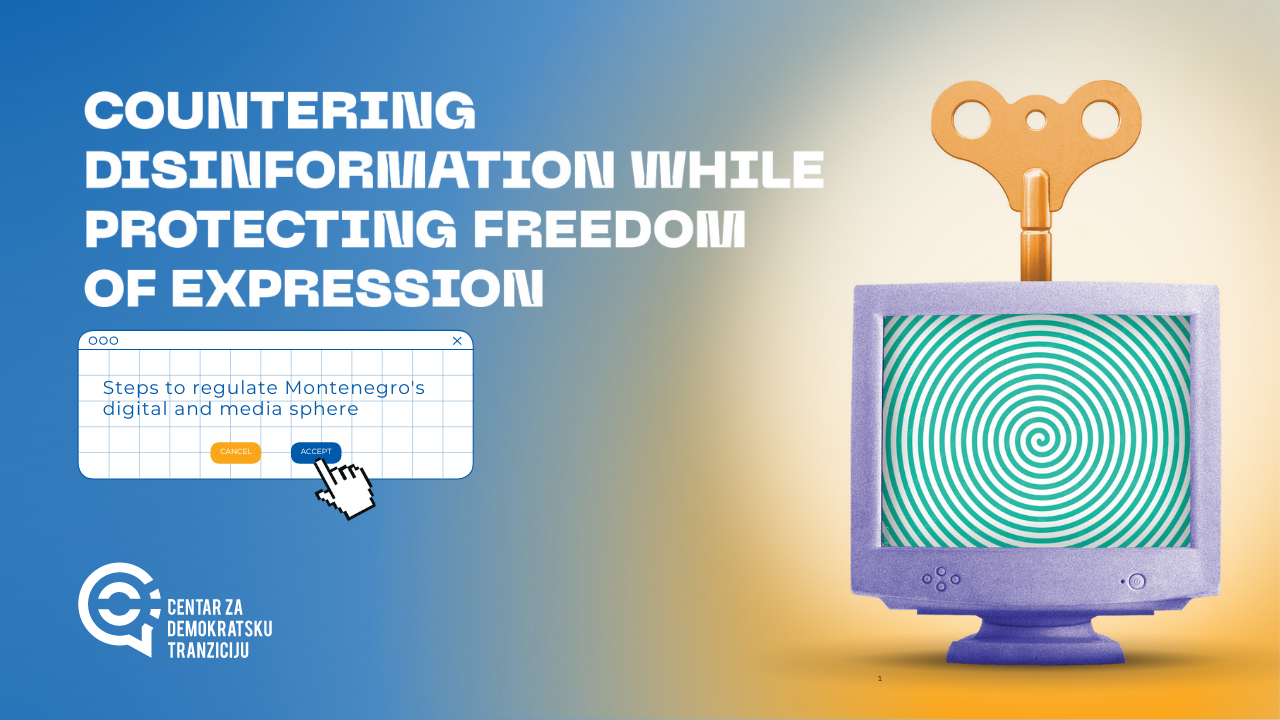Citing commitments made as part of the Declaration of the EU-Western Balkans Summit held in Tirana in 2022, the European Commission’s most recent report on Montenegro highlights the need for Montenegro to step up efforts to close space for foreign interference and information manipulation, including disinformation. Last year’s resolution of the European Parliament also expressed concern over malignant foreign influences, attempts at destabilization and disinformation campaigns meant to undermine Montenegro’s European path and fuel divisions and tensions. Montenegro is therefore called upon to undertake major and systematic efforts to identify and expose disinformation factories, and reinforce the importance of media freedom and independence, high-quality reporting and promoting media literacy as key elements in the fight against disinformation.
However, Montenegro took no visible efforts in this field that could be described as significant or systematic. The current legal framework governing the issue of media, known as “media laws”, does not cover the topic of disinformation at all, nor does it mention the very term. Digital media content and platforms, which are distributed and consumed via digital technologies and the Internet, are virtually unregulated. The strategic documents that are currently in force are mutually incompatible, and although the first-ever Media Strategy does touch upon the issue of disinformation, it offers very few concrete solutions and measurable performance indicators.
While major processes are underway in Europe to regulate the digital media landscape, with many democracies seeking effective mechanisms to shield their societies from the harmful impact of disinformation, Montenegro appears to be stuck in the era of analogue media. A host of accumulated issues such as political and economic influences on the media, a lack of editorial independence and self-regulation are keeping the discussion about the need for better regulation of the media space trapped within the framework of competing political and/or ownership interests, while completely overlooking the contemporary challenges and ways of addressing them. These challenges are not insignificant, and they are not to be addressed through solutions that could easily be replicated from elsewhere without jeopardizing freedom of expression and democracy.
The Center for Democratic Transition (CDT) hopes that this analysis will encourage the necessary discussion on ways to curb the unchecked spread of disinformation through a new legal and strategic approach. The key conclusions of the analysis underscore the importance of changing the current approach to combating disinformation. Adopting a holistic approach is advised in place of inconsistent and often contradictory plans as implemented by different actors. It is also recommended that a dedicated strategy for combating disinformation be developed, along with the establishing of a parliamentary committee specifically tasked with addressing this issue.
It is crucial to keep up to date with EU policies in the area of fight against disinformation at all times, and carefully harmonize with and implement new European regulations. It is also critical to improve media legislation so as to ensure the transparency of media ownership and funding and promote media freedom and pluralism. It is vital to plan and consistently implement measures to improve media literacy.
Lastly, a comprehensive analysis of the strategies currently employed to sanction disinformation is necessary. Potential restrictions on the right to freedom of expression should be planned and carried out in line with EU and Council of Europe standards, with due consideration given to proportionality and training for representatives of all the relevant authorities. We hope that this analysis will serve as a source of inspiration for decision-makers and policy makers, and encourage them to consider measures to improve and amend the legislative and institutional framework.
We remain open to any and all constructive criticism, proposals, and suggestions, so that we can contribute to the efforts to create better and more effective solutions in combating disinformation.
The publication is available here.
Center for Democratic Transition (CDT)


